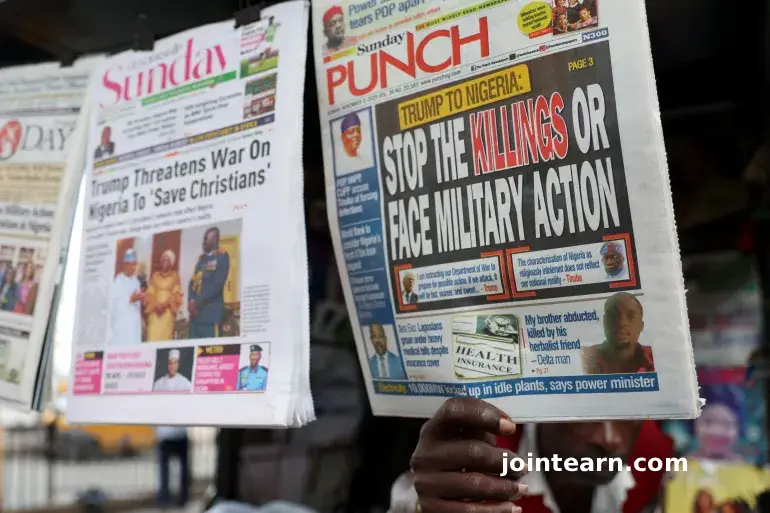
Lagos, Nigeria – Amid US President Donald Trump’s threats to intervene militarily in Nigeria over alleged killings of Christians, Nigerians are calling for homegrown solutions to address decades of violence in the country’s middle belt and northern regions.
Trump claimed on Truth Social that Nigeria faces a “Christian genocide,” warning of potential US military action to “wipe out the Islamic Terrorists committing these atrocities” and threatening to halt aid. Subsequently, the US State Department designated Nigeria a Country of Particular Concern (CPC) over religious freedom violations.
A Multilayered Crisis
For decades, Nigeria’s middle belt has witnessed deadly clashes between Christian farmers and Muslim Fulani herders over land and water resources, intensified by population growth and climate change. At the same time, northern Nigeria has been plagued by attacks from Boko Haram and ISIL-affiliated groups, which have displaced hundreds of thousands and killed thousands.
Experts caution that framing the violence as a “Christian genocide” oversimplifies the problem. Malik Samuel, a senior researcher at Good Governance Africa, said, “There is no such thing as a Christian genocide in Nigeria, but that does not mean Christians are not victims of attacks.”
Similarly, Amaka Anku, Africa practice head at Eurasia Group, stressed that attacks occur across religious lines and are compounded by government ineffectiveness, porous borders, and impunity for perpetrators.
Calls for Nigerian-Led Solutions
Many residents in affected regions, including survivors like farmer Lawrence Zhongo in Miango, are skeptical of foreign military intervention. Zhongo, who lost multiple relatives in attacks, said:
“We hope that Tinubu can come up with a strategy to use internal forces to fight the terrorists and not invite external forces; it is going to be a shameful thing.”
Experts emphasize that local governance, community-based conflict monitoring, and interfaith mediation are critical to resolving the crisis. Olajumoke Ayandele, of NYU’s Center for Global Affairs, recommends supporting early warning mechanisms and post-conflict reconciliation programs to prevent escalation without deepening existing grievances.
Malik Samuel added that addressing root causes such as poverty, unemployment, and infrastructure deficits is essential; security operations alone will not solve the crisis.
Government Stance
President Bola Tinubu and Abuja authorities have rejected claims of systematic religious targeting, insisting that Nigeria is safeguarding religious freedom. The government is engaging in military operations, anti-grazing laws, and the National Livestock Transformation Plan to reduce conflicts between herders and farmers.
Nigerians like Zhongo remain hopeful that a government-led, locally implemented strategy can protect communities without escalating violence or inviting foreign intervention.
“I buried a lot of people. I am tired of all the mass burials that I can’t count,” Zhongo said.


Leave a Reply